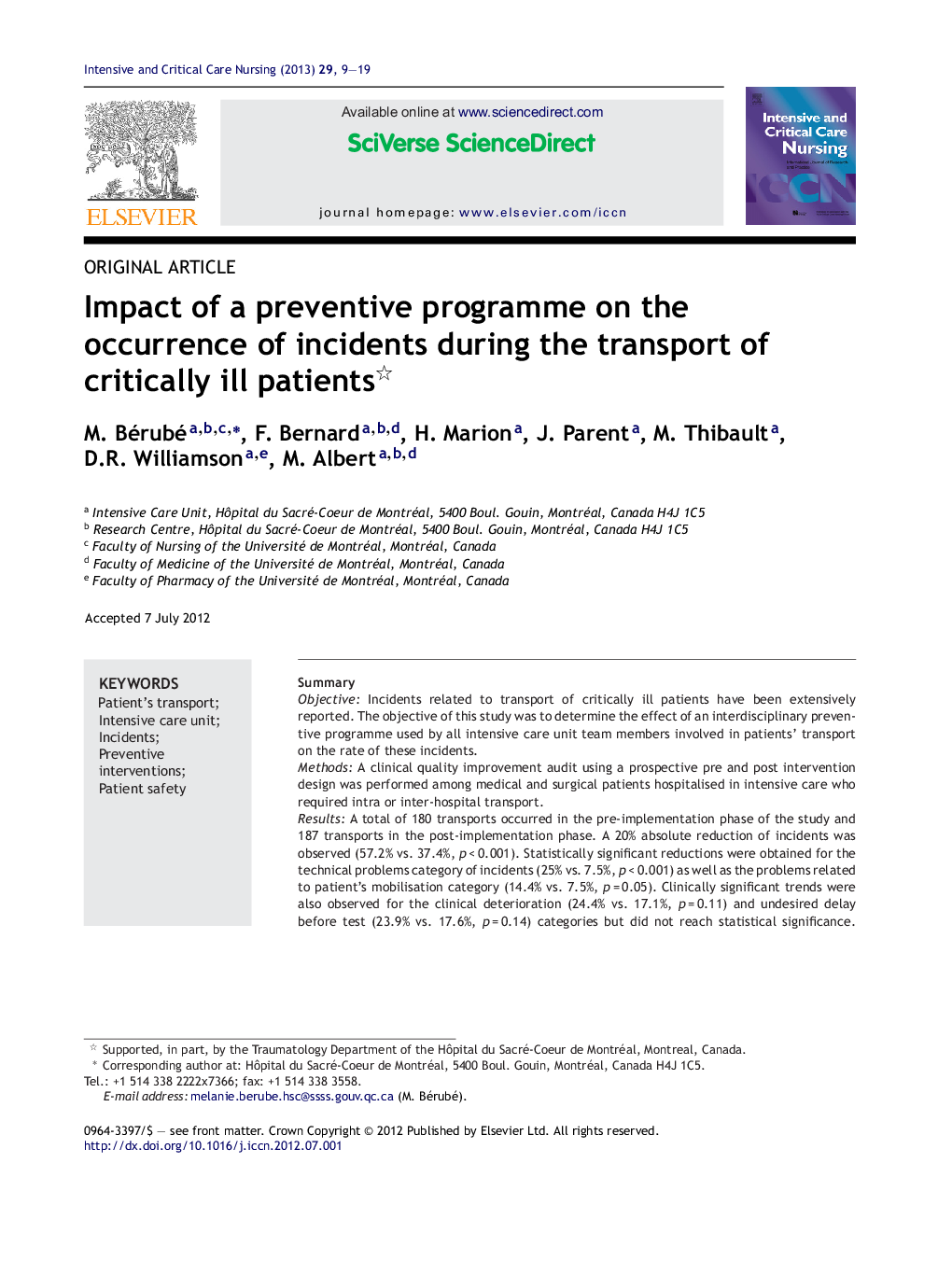| Article ID | Journal | Published Year | Pages | File Type |
|---|---|---|---|---|
| 2652992 | Intensive and Critical Care Nursing | 2013 | 11 Pages |
SummaryObjectiveIncidents related to transport of critically ill patients have been extensively reported. The objective of this study was to determine the effect of an interdisciplinary preventive programme used by all intensive care unit team members involved in patients’ transport on the rate of these incidents.MethodsA clinical quality improvement audit using a prospective pre and post intervention design was performed among medical and surgical patients hospitalised in intensive care who required intra or inter-hospital transport.ResultsA total of 180 transports occurred in the pre-implementation phase of the study and 187 transports in the post-implementation phase. A 20% absolute reduction of incidents was observed (57.2% vs. 37.4%, p < 0.001). Statistically significant reductions were obtained for the technical problems category of incidents (25% vs. 7.5%, p < 0.001) as well as the problems related to patient's mobilisation category (14.4% vs. 7.5%, p = 0.05). Clinically significant trends were also observed for the clinical deterioration (24.4% vs. 17.1%, p = 0.11) and undesired delay before test (23.9% vs. 17.6%, p = 0.14) categories but did not reach statistical significance.ConclusionsA preventive programme applied by all care providers involved in transport of critically ill patients was associated with a reduction of incidents. The application of such a programme should be acknowledged as a standard of care considering the risks inherent to the transportation of ICU patients.
